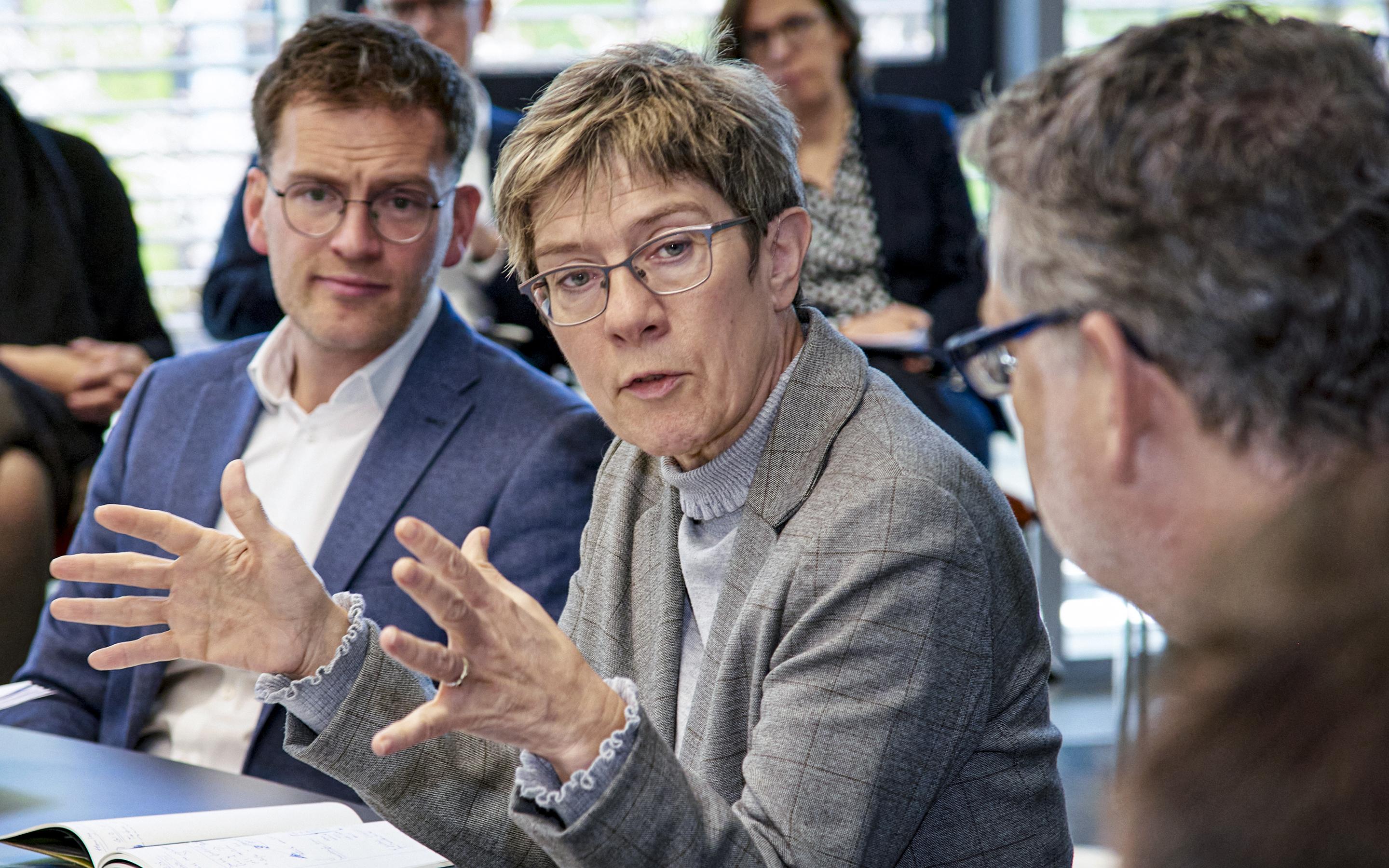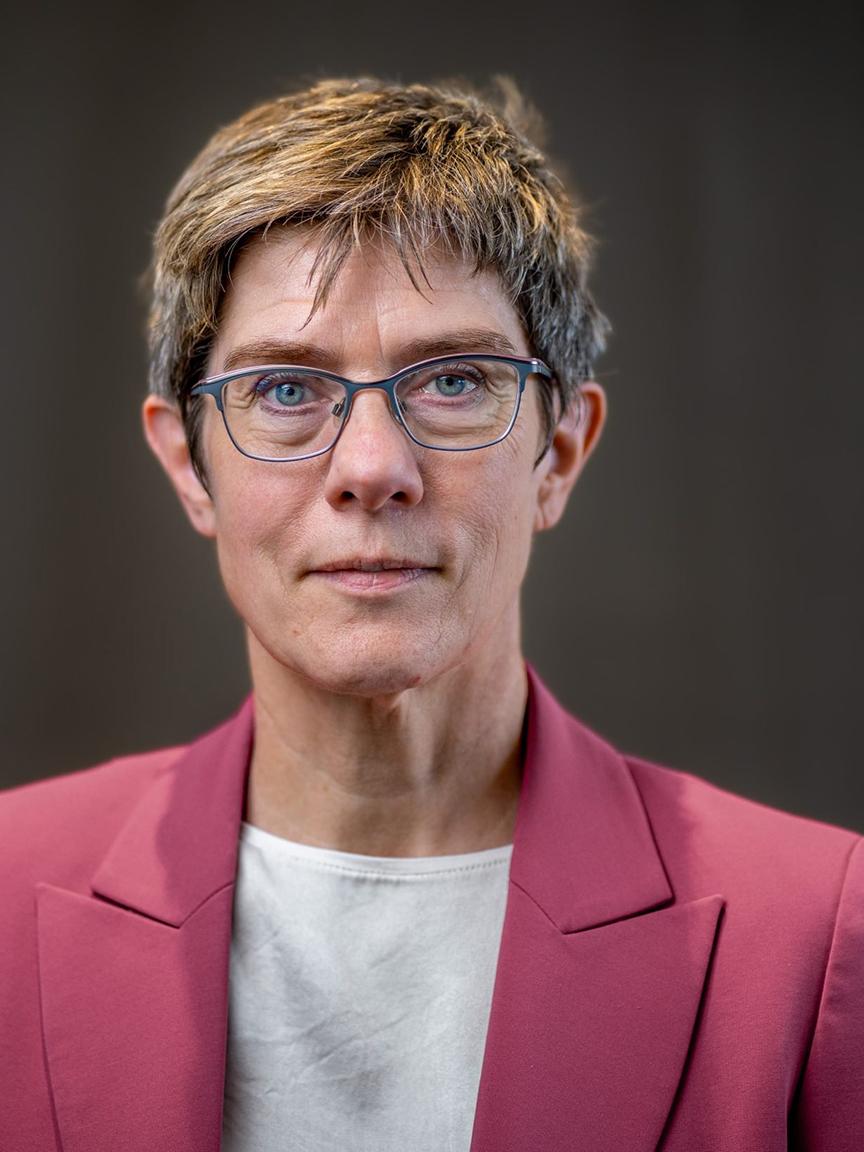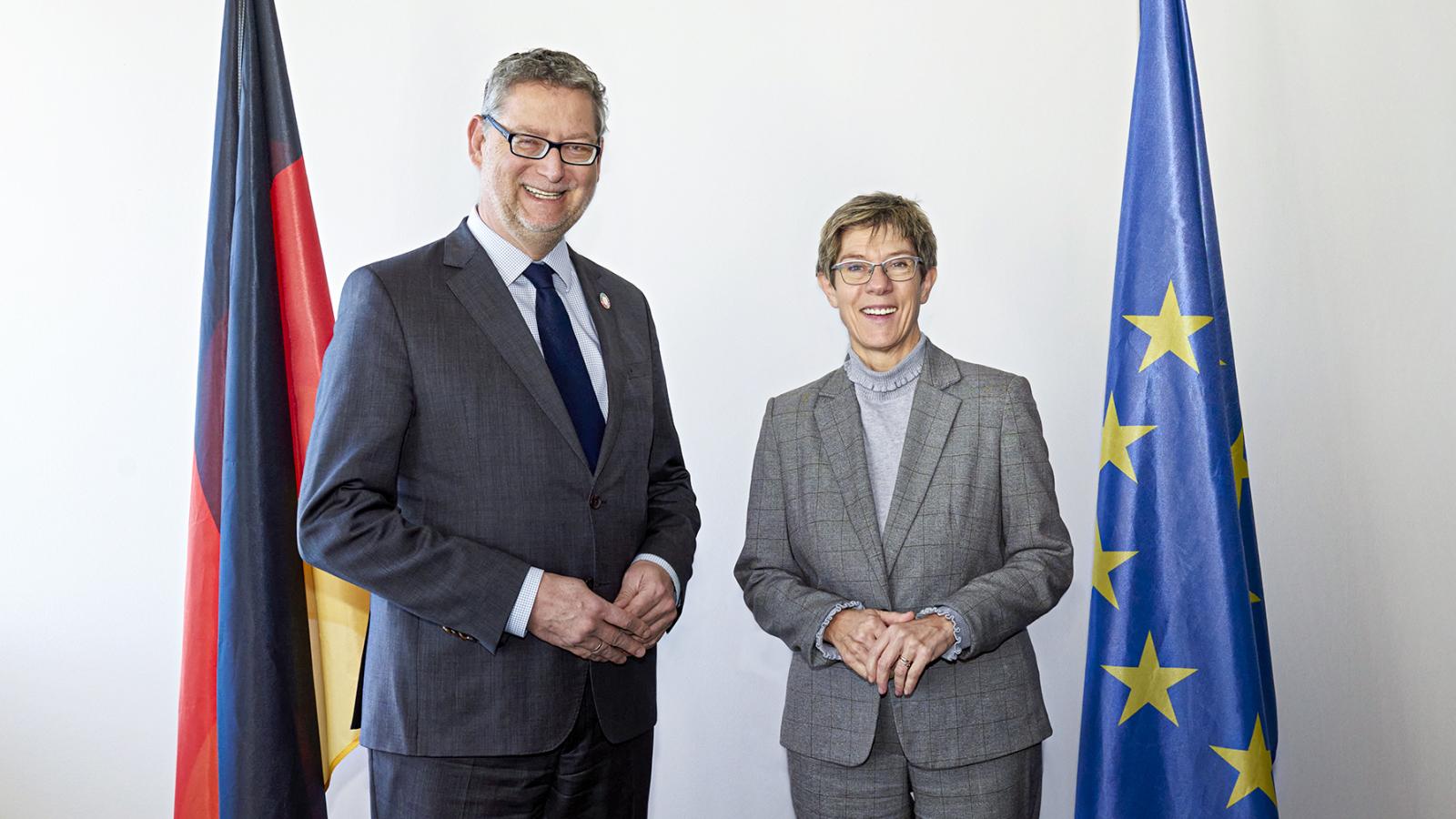 Gaby Gerster/GIZ
Gaby Gerster/GIZ
Putting international cooperation on a new footing
Annegret Kramp-Karrenbauer discusses new partnerships with the Global South and explains why they are particularly important now.
We are currently experiencing seismic shifts. The world is going through a transition so radical it would have been practically impossible to predict only a year ago. In the East, we see a brutal autocrat, in the West an erratic president whose executive-order-based politics are capricious and disruptive. With this style, Trump is changing not only the USA, but also transatlantic relations and the international order as a whole. Meanwhile, his tariffs policy is jeopardising the stability of the entire global economy.
Into this mix we must then add the many other ongoing crises and conflicts, some in our own backyard, from Ukraine to the Middle East, from Mali to Myanmar, not forgetting global challenges such as climate change, water loss and species loss, as well as conflicts over critical mineral resources. Europe is frantically trying to hold onto past certainties while facing the risk of losing the importance it has enjoyed up to now.
If the EU is to effectively address the many challenges facing the continent, it is going to have to find new strength. Only then will we be able to live in peace in the long term, underpin our prosperity, and find an appropriate place for ourselves in the world. For this, it will be indispensable to recalibrate international politics, and to forge strong new partnerships outside the EU’s borders that go beyond our traditional alliances.
In view of ongoing geopolitical changes, this realignment of our relations is crucial, particularly our relations with the countries of the Global South – even in the face of budgetary constraints. We can only hope to hammer out solutions to the critical issues that will determine our future if we work with these nations. Not only are they disproportionately hard hit by the challenges of our times, such as climate change, migration and geopolitical tensions. They are also gaining growing strategic significance because of their demographic development, expanding markets, valuable mineral resources and their increasingly important role in various next-generation technologies.
We will, however, have to remove our blinkers. In future, German engagement should take as its starting point an interests-based approach. The donor-recipient patterns of the past must increasingly give way to relationships in which the interests of both sides are realistically identified and openly negotiated, ideally resulting in a win-win situation. This kind of approach would also be distinct from the foreign policy pursued by other countries, which focus more on exploiting the situation to their own advantage.
That is not a goal that Germany should adopt. It should focus on relationships among equals, and on give and take. Some of you might think that this would be to betray the objectives of Germany’s development cooperation, the goals we have served for decades. It might even be perceived as turning our backs on the 2030 Agenda. But none of this is true. A greater focus on interests cannot be equated with a departure from our values. Firstly, because genuine partnerships that are based on dialogue are a sign of respect, and thus a value in themselves. And secondly, because humanitarian relief will still be needed in emergencies, as will support for health care, food and nutrition security, and poverty reduction. Our recommendations are that ‘classic’ development cooperation programmes should stand beside interests-based partnerships as equally important pillars of German engagement. Nevertheless, this does mark a move away from ‘business as usual’ and it means making more efficient use of public funding.
 Global Perspectives Initiative gUG
Global Perspectives Initiative gUG
Annegret Kramp-Karrenbauer is Chair of the Global Perspectives Initiative’s Commission A Changing World – Germany and the Global South.
 Gaby Gerster/GIZ
Gaby Gerster/GIZ
Former Federal Minister of Defence Annegret Kramp-Karrenbauer in a meeting with Thorsten Schäfer-Gümbel, Chair of the GIZ Management Board
The German Institute for International and Security Affairs has calculated that Germany already maintains 119 partnerships with over 80 countries – some of which are already channelled through GIZ. Different models are involved, from strategic partnerships to alliances for research and innovation. We need to explore and catalogue these partnerships, and define them more rigorously, to avoid any appearance of randomness. The Commission therefore recommends a graduated approach, within which there would be strategic partnerships with a few selected countries in the Global South. Within these partnerships, the full range of available instruments would then be used to shape external relations. Other partnerships should be aligned with individual policy areas, including climate, energy and minerals partnerships, or involve what we term minilateral cooperation, such as climate clubs.
To achieve this, the German Government must launch a strategic process with a view to systematically shaping future partnerships and basing them on clear criteria. And the interests of the private sector will have to be taken into greater account. The sector will be called on to play a more important part in international cooperation at many levels, both at local level in partner countries to develop the economy, and in terms of German exports. One way of better dovetailing operations with Germany’s private sector might be to incorporate private-sector requirements in project and module proposals from the outset.
Our Commission has drawn up a number of proposals for the paradigm shift in our relations with the Global South that we feel is vital. To list them all here would go well beyond the scope of this article. They are all set out in the Commission’s report. But it was our unanimous view that international cooperation is and will remain a highly relevant and crucial policy area for Germany, quite particularly against the backdrop of radical global upheavals. This makes it all the more important to reform and adapt it so that we are well equipped for the future.